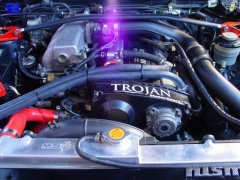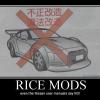I'm Ticked Off...what Gets You Wound Up?
Announcements
-
Similar Content
-
Latest Posts
-
I'll measure it up at the lowest point later and post it up Currently painting, with the oven all warmed up to 93°c
-
How much clearance is under the car? We have speed humps being added everywhere around me. Faster than they fix the potholes, thats for sure.
-
After some googling of various websites IRT the best ride height for correct geometry I ended up going, hub to guard, 330mm in the rear and 345 at the front, these heights came from Flyin' Miata in the states as what they recommend (13" rear, 13.5" front) The rear needed to only come up 5mm, but the front came up 15mm Overall it is around a 25mm drop from OEM ride height, doesn't look all 4x4, and hopefully should be enough height to clear those pesky speed humps I have lost around 0.5° camber on the front, and around 0.2° in the rear, I have no idea about what it did to toe settings so I'll look at a new alignment next week to get it set up how I want, zero rear and a little in at the front I've also stripped the new intake and am currently cleaning and preparing the alloy for some paint, I've headed into work to do it as I can use the ovens in the soils lab to cure the wrinkle paint at 90°c Jackie has banned me from using the oven at home for stuff like this....🤣
-
At my age, 59, I'm in bed by 20:30 nowadays 😴 I'm pretty much a solar powered device, powering up at first light, and powering down when the sun goes down 🤣 Oh to be young again.....
-
They do that every year
-








Recommended Posts
Create an account or sign in to comment
You need to be a member in order to leave a comment
Create an account
Sign up for a new account in our community. It's easy!
Register a new accountSign in
Already have an account? Sign in here.
Sign In Now